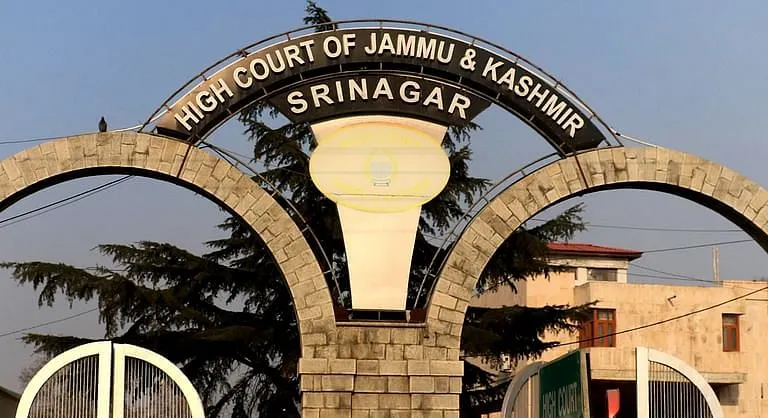Srinagar, May 18: The High Court of J&K and Ladakh has ruled that a Sessions Judge can make reference to the High Court if the case before it involves validity of any provision of any Act, Ordinance or Regulation and if any question of law arises for consideration.
The court made the ruling while disposing of a Criminal Reference related to Wamiq Farooq murder case. Farooq was killed after being hit on the head by a tear-smoke shell that was allegedly fired at close range by police near Gani Memorial Stadium here on January 31, 2010.
Subsequently in 2015, the accused ASI Abdul Khaliq and SPO Muhammad Akram in pursuance of the order of Forest Magistrate Srinagar were sent to Judicial custody and were later released on bail in 2018.
A criminal complaint was pending consideration before the Second Additional Sessions Judge, Srinagar. However on account of the “threat perception”, the 2nd Additional Sessions Judge, Srinagar, referred the matter to the Principal District & Sessions Judge, Srinagar, with the request that the case may be transferred to some other court.
The Principal Sessions Judge, Srinagar, vide order dated 31.12.2015 referred the matter to the High Court as a “reference” in exercise of powers under Section 432 Cr.P.C. (Old) / 395 Cr.P.C. (New).
The Principal Sessions Judge, Srinagar, in the reference order has mentioned that one of the accused (ASI Abdul Khaliq) orally submitted that the counsel engaged by him had been threatened and he was not having any legal assistance.
Advocate Aijaz Ahmad Dar, counsel for Farooq Ahmad Wani submitted that the provisions of Section 432 Cr. P.C. (Old) and Section 395 Cr. P.C. (New) are verbatim the same and that the reference did not fall within the ambit of the provision and, as such, was not maintainable.
Refering to the criminal Procedure Code, the Court said: “A reading of sub-section (1) of Section 395 Cr. P. C. would reveal that the court can make a reference to the High Court on being satisfied that the matter pending before it involves a question as to the validity of any Act, Ordinance or Regulation or of any provision thereof which may be necessary for disposal of the case before it or any provision of such Act, Ordinance or Regulation is invalid or inoperative but has not been so declared by the High Court to which the said court is subordinate or by the Supreme Court, provided reasons are recorded for making such a reference to the High Court”.
“ Sub-section (2) of Section 395 Cr. P. C. provides that the court of Session’s may also make a reference to the High Court if it thinks fit that in any case pending before it question of law arises for consideration”, the Court said.
A conjoint reading of these provisions, the court said, make it clear that reference can be made to the High Court by the Session Judge only where in a pending case “a question as to the validity of any provision of any Act, Ordinance or Regulation is involved or if any such provision in the opinion of the court is invalid or inoperative but has not been so declared by the High Court and the Supreme Court as also where any question of law arises for consideration”.
The High Court said no ground as contained in sub-section (1) or sub-section (2) of Section 395 Cr. P. C. exists for making a reference to it.
“The Principal Sessions Judge, Srinagar, has simply made the reference for the reason that the accused is not getting any proper legal assistance and that his counsel has been threatened. The reasons shown for making the reference are not the grounds on which a reference can be made under Section 395 Cr. P. C,” the High court said.
“The reference in question is clearly outside the purview of Section 395 Cr. P. C. (New) or Section 432 Cr. P.C. (Old) and is not maintainable”, it said. Disposing of the reference, the court ordered that the record be returned to the Principal Sessions Judge, Srinagar, to proceed further in the matter in accordance with law. The order essentially entails resumption of the trial in the case after over seven years.






